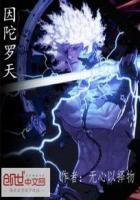HIS POWER AS ORATOR AND PREACHER
EVEN as a young man Conwell won local fame as an orator. At the outbreak of the Civil War he began making patriotic speeches that gained enlistments. After going to the front he was sent back home for a time, on furlough, to make more speeches to draw more recruits, for his speeches were so persuasive, so powerful, so full of homely and patriotic feeling, that the men who heard them thronged into the ranks. And as a preacher he uses persuasion, power, simple and homely eloquence, to draw men to the ranks of Christianity.
He is an orator born, and has developed this inborn power by the hardest of study and thought and practice. He is one of those rare men who always seize and hold the attention. When he speaks, men listen. It is quality, temperament, control--the word is immaterial, but the fact is very material indeed.
Some quarter of a century ago Conwell published a little book for students on the study and practice of oratory. That ``clear-cut articulation is the charm of eloquence'' is one of his insisted-upon statements, and it well illustrates the lifelong practice of the man himself, for every word as he talks can be heard in every part of a large building, yet always he speaks without apparent effort.
He avoids ``elocution.'' His voice is soft-pitched and never breaks, even now when he is over seventy, because, so he explains it, he always speaks in his natural voice. There is never a straining after effect.
``A speaker must possess a large-hearted regard for the welfare of his audience,'' he writes, and here again we see Conwell explaining Conwellism.
``Enthusiasm invites enthusiasm,'' is another of his points of importance; and one understands that it is by deliberate purpose, and not by chance, that he tries with such tremendous effort to put enthusiasm into his hearers with every sermon and every lecture that he delivers.
``It is easy to raise a laugh, but dangerous, for it is the greatest test of an orator's control of his audience to be able to land them again on the solid earth of sober thinking.'' I have known him at the very end of a sermon have a ripple of laughter sweep freely over the entire congregation, and then in a moment he has every individual under his control, listening soberly to his words.
He never fears to use humor, and it is always very simple and obvious and effective. With him even a very simple pun may be used, not only with-out taking away from the strength of what he is saying, but with a vivid increase of impressiveness.
And when he says something funny it is in such a delightful and confidential way, with such a genial, quiet, infectious humorousness, that his audience is captivated. And they never think that he is telling something funny of his own;it seems, such is the skill of the man, that he is just letting them know of something humorous that they are to enjoy with him.
``Be absolutely truthful and scrupulously clear,''
he writes; and with delightfully terse common sense, he says, ``Use illustrations that illustrate''--and never did an orator live up to this injunction more than does Conwell himself. Nothing is more surprising, nothing is more interesting, than the way in which he makes use as illustrations of the impressions and incidents of his long and varied life, and, whatever it is, it has direct and instant bearing on the progress of his discourse. He will refer to something that he heard a child say in a train yesterday; in a few minutes he will speak of something that he saw or some one whom he met last month, or last year, or ten years ago--in Ohio, in California, in London, in Paris, in New York, in Bombay; and each memory, each illustration, is a hammer with which he drives home a truth.
The vast number of places he has visited and people he has met, the infinite variety of things his observant eyes have seen, give him his ceaseless flow of illustrations, and his memory and his skill make admirable use of them. It is seldom that he uses an illustration from what he has read; everything is, characteristically, his own.
Henry M. Stanley, who knew him well, referred to him as ``that double-sighted Yankee,'' who could ``see at a glance all there is and all there ever was.''
And never was there a man who so supplements with personal reminiscence the place or the person that has figured in the illustration. When he illustrates with the story of the discovery of California gold at Sutter's he almost parenthetically remarks, ``I delivered this lecture on that very spot a few years ago; that is, in the town that arose on that very spot.'' And when he illustrates by the story of the invention of the sewing-machine, he adds: ``I suppose that if any of you were asked who was the inventor of the sewing-machine, you would say that it was Elias Howe. But that would be a mistake. I was with Elias Howe in the Civil War, and he often used to tell me how he had tried for fourteen years to invent the sewing-machine and that then his wife, feeling that something really had to be done, invented it in a couple of hours.'' Listening to him, you begin to feel in touch with everybody and everything, and in a friendly and intimate way.
Always, whether in the pulpit or on the platform, as in private conversation, there is an absolute simplicity about the man and his words; a simplicity, an earnestness, a complete honesty. And when he sets down, in his book on oratory, ``Aman has no right to use words carelessly,'' he stands for that respect for word-craftsmanship that every successful speaker or writer must feel.
``Be intensely in earnest,'' he writes; and in writing this he sets down a prime principle not only of his oratory, but of his life.
A young minister told me that Dr. Conwell once said to him, with deep feeling, ``Always remember, as you preach, that you are striving to save at least one soul with every sermon.'' And to one of his close friends Dr. Conwell said, in one of his self-revealing conversations:















